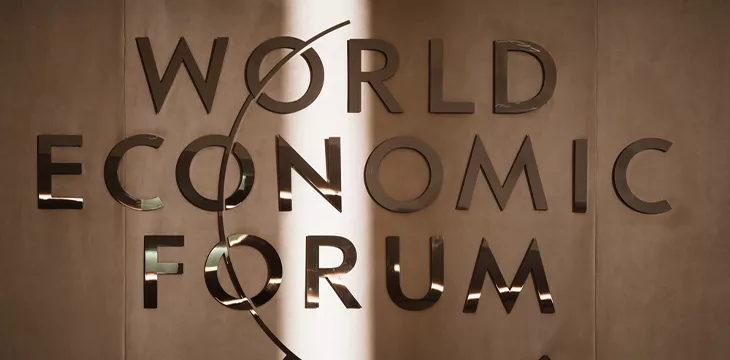|
Getting your Trinity Audio player ready...
|
The World Economic Forum (WEF) has published a report examining wholesale central bank digital currencies (CBDCs).
The paper, titled “Modernizing Financial Markets with Wholesale Central Bank Digital Currency (wCBDC),” looked at current initiatives, financial markets use cases, and how wCBDCs could address key “pain points” and industry challenges.
“Over 98% of the global economy’s central banks are researching, piloting or deploying central bank digital currency (CBDC). There is an opportunity to harness this innovation in central bank money to enhance systemically important payments and securities transactions between financial institutions,” the WEF said.
The international non-governmental organization went on to explain that “the report seeks to improve the efficiency, security, and inclusivity of the financial system, paving the way for a more resilient global economy.”
Eight long-standing industry challenges were identified, four of which were deemed areas in which a wCBDC could provide value or “areas ripe for modernization using wCBDC.”
One such case related to “disparate settlement cycles” in cross-border securities settlements. The global nature of capital markets has resulted in a need for harmonized settlement cycles across regions. However, most real-time gross settlement (RTGS) systems have limited operating hours. For example, the Bank for International Settlements (BIS) has identified a limited five-hour window (6-11 a.m. GMT) where there is a maximum overlap. The WEF suggested that wCBDC could help realize a global settlement window, supplementing RTGS systems by operating at near 24/7 cycles.
“wCBDC represents an opportunity to reach settlement finality at any time of day as a supplement to RTGS systems, if designed with this feature of automatic operations at its core, much like how many retail and commercial FPSs [fast payment systems] operate,” the paper said.
Another challenge related to “operational risk and settlement failures” is where an amalgam of data quality challenges, limited interoperability, and manual processes lead to settlement failures in securities markets. Here, the WEF proposed that wCBDC could enhance trade and post-trade operations by securely transmitting settlement data across parties and jurisdictions to support automation and reduce settlement risk.
The two remaining areas of challenge that wCBDC could solve were growing foreign exchange settlement risk and the lack of a tokenized credit risk-free settlement medium. In the former, wCBDC would facilitate expanding ‘payment versus payment’ (PvP) arrangements; in the latter, it would allow for tokenizing credit risk-free settlement media.
In terms of the next steps, the WEF suggested that policy-makers, financial market infrastructures, and private-sector leaders would benefit from tailoring the insights in the report to their particular jurisdiction and institutions while also calling for further
exploration of the technology.
“This report offers key findings to facilitate further exploration of wCBDC and hopes to serve as a foundational step towards a more efficient, responsible, and secure future for financial markets,” the WEF concluded.
To learn more about central bank digital currencies and some of the design decisions that need to be considered when creating and launching it, read nChain’s CBDC playbook.
Watch: Blockchain provides perfect foundation for CBDC

 07-15-2025
07-15-2025 





